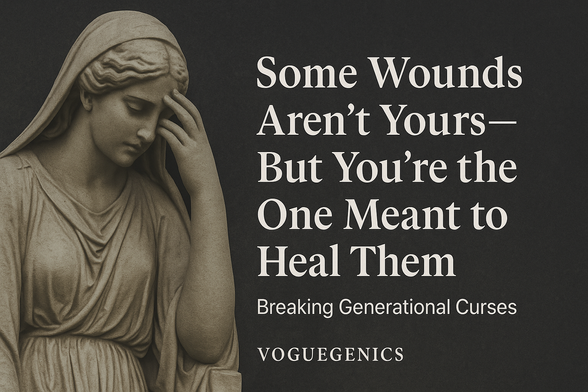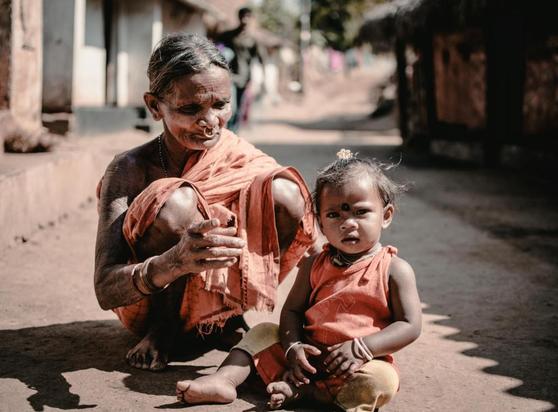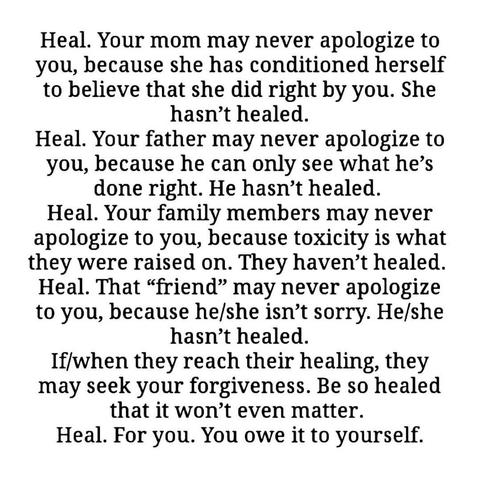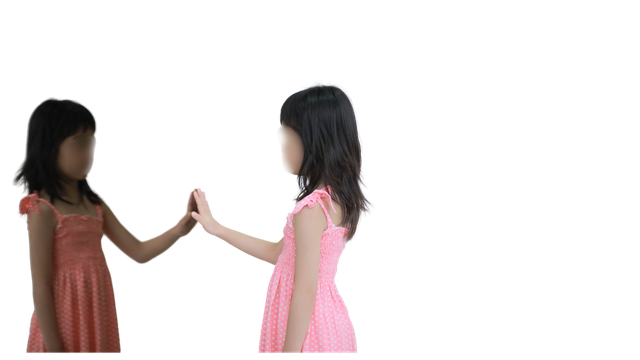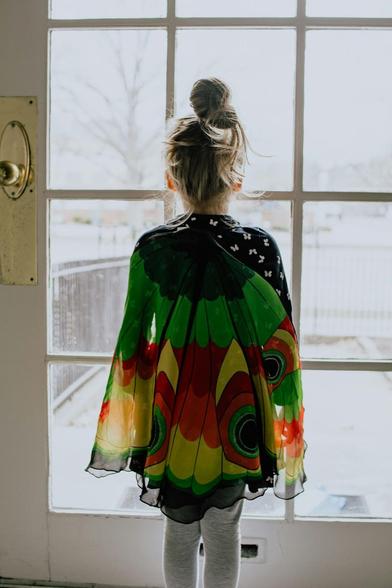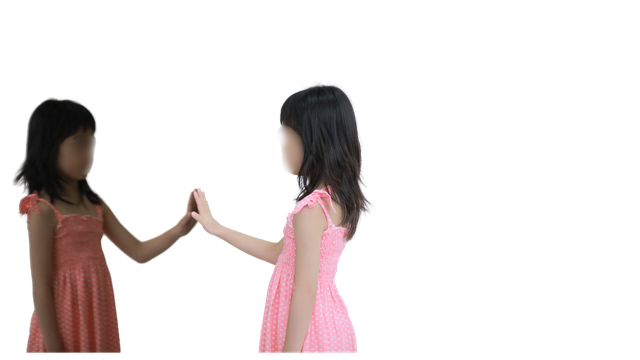We’re not just healing ourselves.
We’re fulfilling the prophecy.
#ancientwisdom #generationalhealing #lineage #earthstarrising
#SpiritualAwakening #NewEarth #Lightworkers #ConsciousCreator #AwakenedAF
#GenerationalHealing
Did your parents mess you up? You’re not alone. But here’s the truth: Healing is possible. Understanding generational patterns is the first step to breaking free and creating your own story.
https://de320.isrefer.com/go/UNTHINKABLE/Stuartn/
#BreakTheCycle #GenerationalHealing #RewriteYourStory #ThinkandGrowEducation #RayBehan #Personalities #Introspection
Childhood Neglect Is a Generational Curse
Bronwyn Schweigerdt shares how being unseen and unheard as a child becomes internalized as shame—and how that pain gets passed down. Learn more at www.FishingWithoutBait.com
#Mindfulness #EmotionalHealth #GenerationalHealing #MentalHealth #FishingWithoutBait #PodcastClips
Martyrdom Is Not a Love Language: What We’re Really Teaching Our Kids
Part 2
In our household, we don’t do martyrdom. At least, we try not to. But sometimes, the ghosts of how we were raised sneak in and set the table before we even get there.
The other night, something small happened—over a few meatball, of all things. My stepdaughter wanted the last few. I gently reminded her, “Your dad hasn’t had any yet.” Immediately, the mood shifted. She withdrew. My husband did his usual—I’m-fine-I-don’t-need-any charade. And I was left with the sinking feeling that once again, I had disrupted a script they were all too familiar with.
Here’s the thing: my husband grew up poor. Like many who’ve lived through scarcity, he learned early that love looked like sacrifice. Parents who went without so their kids could eat. Adults who silenced their needs and never complained. Survival required that mindset—but once survival is no longer on the table, that kind of self-neglect turns toxic.
Today, my husband has more than enough. We’re okay. And yet, when the opportunity comes to assert a small need—to say “yes, I’d like the last meatball”—he doesn’t. He backs away. Smiles. Declines. He still wears his poverty like armor, even when there’s no battle.
And what gets modeled to the kids in moments like that is dangerous:
- That love means going hungry (literally and metaphorically).
- That setting boundaries is selfish.
- That your needs should always come last—especially if you’re the adult.
- That being “good” means being invisible.
I don’t want to raise children who grow up thinking love is measured by how much of yourself you erase.
I want them to learn that yes, love includes compromise and care—but also self-respect. That adults can speak up for themselves without guilt. That boundaries are not barriers—they’re blueprints for healthy relationships.
So when I speak up at the dinner table, it’s not about the food. It’s about the message.
Because too many of us were raised by martyrs, and while we’re grateful for their sacrifices, we’re also carrying the cost of never learning how to advocate for ourselves without guilt.
I want more for our kids than a life of quiet suffering disguised as devotion. I don’t want them to be depleted parents or spouses, or partners who never figure out what they really want out of life or who they really are because they only know how to give love by punishing themselves in the name of love. Instead, I dream of them embracing a life filled with joy, self-discovery, and authentic connections. They should learn to cherish their own needs and desires, nurturing their passions while fostering relationships built on mutual respect and understanding. I envision a future where they can freely express their emotions without fear of judgment or guilt, recognizing that true love does not come from sacrifice or self-neglect, but from a place of fulfillment and balance. I hope to instill in them the courage to pursue their dreams and the wisdom to understand that their worth is not defined by the pain they endure, but by the happiness they cultivate and share with others. It is my deepest wish that they grow up knowing that love is about upliftment and support, encouraging them to thrive rather than merely survive.
It’s hard to unlearn martyrdom when it was modeled as love. But that’s exactly why we must do it—so our kids don’t confuse silence with strength or self-neglect with love. We break the cycle not by staying quiet, but by showing them a different way.
Stay tuned for next Sunday’s Part 3
#blendedFamilyDynamics #boundariesAndLove #emotionalModeling #generationalHealing #gentleParenting #raisingEmotionallyHealthyKids
I’m not comfortable in the spotlight, but I still crave connection. Compliments make me squirm, but parenting heals pieces of me I thought were permanent. This is a story about wounds, daughters, and the invisible work of healing.
✨ Read the full post: fabicthatmademe.com
#GenerationalHealing
#MotherhoodUnfiltered
#WallflowerWisdom
#HealingThroughParenting
#FromWoundsToWisdom
#FaithAndFamily
http://fabricthatmademe.com/2025/05/13/invisible-until-im-not/
Some wounds didn’t start with you—but you might be the one meant to end them.
✨ New series on generational curses now live.
#CycleBreaker #Voguegenics #GenerationalHealing
https://voguegenics.com/some-wounds-arent-yours/?utm_source=mastodon&utm_medium=jetpack_social
Writing Flawed Mothers: Guilt, Grace, and the Space Between
There’s a particular ache that lives in the space between what a mother intends and what a child receives. That ache is what I try to capture when I write mothers—especially the complex ones, the ones who get it wrong before they get it right, or maybe never get it fully right at all.
Reading The House of the Spirits by Isabel Allende changed something in me. Clara, with her quiet magic and spiritual detachment, and later Blanca and Alba—each woman layered in pain, power, protection, and silence. That novel didn’t offer easy maternal archetypes. It gave me mothers who hurt and healed, who sometimes protected their children by leaving them or letting them go.
https://haveacupofjohanny.com/the-devil-that-haunts-them-series/
It helped me realize that sometimes love and damage sit in the same room. That sometimes a mother keeps secrets because she thinks silence is safer. That sometimes her survival instincts look a lot like abandonment, and her fear of being seen too clearly makes her disappear before your eyes.
When I started writing Under the Flamboyant Tree, Bianca emerged from that space. She isn’t an evil mother. She’s a woman who chose self-preservation over staying. She’s sharp, emotionally inconsistent, sometimes loving, sometimes absent. Writing her was hard. It meant I had to look at the wounds that shaped her and resist the urge to fix her.
https://haveacupofjohanny.com/the-ordinary-bruja/
Josefina in The Ordinary Bruja is different. Her silences are protective. Her distance is survival. She carries guilt and love in equal measure, but her choices—and omissions—still leave a mark on Marisol. She’s a mother who did her best while being chased by her worst fears. And her daughter is left to untangle what that love really meant.
But I couldn’t have written them—not truthfully—until I turned inward.
Starting therapy taught me to step outside of my past and stop clinging to every hurt like a proof of injustice. It helped me learn to say, this happened, and then ask, what did it teach me?
That shift broke something open in me. I stopped reliving my story as a victim and started observing it as a student. I looked at the mothers in my life—and then at myself.
I saw the ways I’ve failed. The moments I snapped when I should’ve softened. The walls I built to protect myself that also blocked my kids (both my biological child and my stepkids) from seeing my love clearly. And it made me weep—not just for the times I got it wrong, but for the incredible chance I have every day to do better.
So now, when I write mothers, I let them be messy. I let them love in broken ways. I let them reflect the reality that healing is nonlinear. That protection can look like control. That silence can scream with meaning. And most importantly, that redemption—when it comes—is a choice, not a guarantee.
Writing flawed mothers helped me become a better one.
And maybe, just maybe, reading them can help someone else see that love and imperfection have always coexisted. That being loved badly doesn’t mean you weren’t loved. And that the healing starts the moment you look at the wound without flinching.
If this reflection resonated with you, share it with someone who’s still untangling their own mother story. Leave a comment and tell me: What book helped you see motherhood—or yourself—differently? Let’s talk about the hard, honest, beautiful middle.
#biancaCharacter #characterDevelopment #generationalHealing #josefinaEspinal #latineStorytelling #motherhoodInFiction #TheOrdinaryBruja #therapyAndWriting #UnderTheFlamboyantTree #writingFlawedMothers
What we judge in others, we often mirror ourselves. My life, woven with abuse, addiction, neglect, and abandonment, revealed this truth. Dare to look in the mirror with me
#generationalhealing #trauma #breakingcycles #AddictionRecovery
Want to raise confident, independent kids? 🌱💪 Break harmful generational patterns and create a healthier, empowering environment for your children. Start building their future today! #ParentingTips #BreakTheCycle #ConfidentKids #GenerationalHealing
https://paminy.com/want-raise-confident-independent-children-how-break-generational-patterns/
Ever wondered why 'good' people do things that hurt themselves or others? My journey through a cast of characters labeled as 'bad' taught me that actions often stem from deep wounds and unmet needs.
#generationalhealing #trauma #breakingcycles #AddictionRecovery
"In acknowledging these wounds, I begin to unravel the cycle of despair that has plagued us for generations.
#generationalhealing #trauma #breakingcycles #AddictionRecovery
Those with hearts of gold often bear the deepest scars... Beneath their kindness lies a wellspring of pain."
Connect deeper within this Heart space
▸ https://lttr.ai/AVsQI
#generationalhealing #trauma #breakingcycles #AddictionRecovery
Children learn through relationships... I internalized the absence of my father as a testament to my own inadequacy."
#generationalhealing #trauma #breakingcycles #AddictionRecovery
"In acknowledging these wounds, I begin to unravel the cycle of despair that has plagued us for generations.
#generationalhealing #trauma #breakingcycles #AddictionRecovery
"I refuse to sugarcoat the depths of despair, for they resonate with many who struggle to articulate their own experiences."
DM for more💫 https://lttr.ai/AUj12
#generationalhealing #trauma #breakingcycles #AddictionRecovery
Watching Erin Reed's reel about her mom's recent passing deeply resonated with me. She mentioned how she learned to be a mom thanks to her own mother.
This made me reflect on my own upbringing. My dad was strict, and while he played with me a lot, he never told me, "I love you." I feared him on his bad days—quick to anger, yelling, and physical punishment made him unpredictable.
In contrast, my mom was almost always sweet and caring. Though she also had moments of anger and physical punishment, it was less frequent than my dad's.
After transitioning, I found it challenging to adopt the term "mom." My therapist reminded me that bearing a child isn't a requirement to be called one. I raise, love, listen, fight for, and am emotionally available to mine.
Reflecting on my "mothering" skills, I realize how much I’ve learned from my mom, sans the physical punishment. I could have taken the path my dad did, passing on generational trauma. Instead, I chose to reflect my mom's nurturing side, blending it with my wife's and my own approach.
Today, we have a beautiful human being who is caring, empathetic, expressive, and has a real voice in our home. I'm grateful for choosing my mom's way, not my dad's.
#ParentingReflections #GenerationalHealing #MotherhoodJourney
"People are not defined by their actions alone; those actions often stem from deep wounds and unmet needs."
#generationalhealing #trauma #breakingcycles #AddictionRecovery
I’m going to openly share about #mentalhealth and say that I am feeling extremely lonely right now as I tend to around the holidays. I’m #neurodivergent and decided to give up my blood family to choose #generationalhealing for my life. I wanted to raise my sweet girl in health and love. But it’s SO hard to do inside capitalism. I need to share to feel clear and honest, but I also need more community and support. Reaching out, giving hugs to those who reach back. Love and uplift my friends. ❤️❤️
As a child growing up in a *very* traumatized household a compliment often paid my mom was she 'could make a Christmas out of nothing.' I *lived* for those few gifts, took such care of my precious few possessions. Trauma would always take em away again. The lesson I needed was: These toys are not important. YOU are important. Looks like Christmas isn't as important as safe and sound.
I followed my mom's Christmas footsteps but not the rest. My daughter toned down Christmas.
#GenerationalHealing


